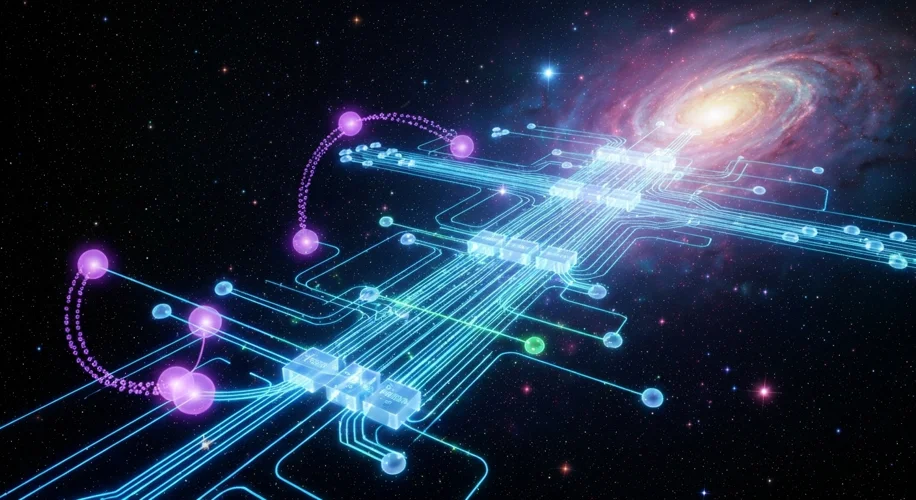Did you know that artificial intelligence is not just about recommending your next binge-watch or powering self-driving cars? It’s also venturing into the deepest mysteries of the universe, and recently, it found something truly astonishing.
Scientists have discovered that an AI system has identified a new kind of physics, something that had completely escaped human observation. This wasn’t a simple pattern recognition task; it was about an AI delving into complex data from particle accelerators and identifying relationships and behaviors that weren’t predicted by our current understanding of physics.
Think about it: for centuries, we’ve built our understanding of the cosmos on theories like general relativity and quantum mechanics. These have served us incredibly well, explaining everything from the orbits of planets to the behavior of subatomic particles. But science is always pushing boundaries, and sometimes, the universe throws us curveballs that our existing frameworks can’t quite catch.
This is where AI is starting to shine. By processing vast amounts of data – far more than any human team could analyze in a lifetime – AI can spot subtle correlations and emergent properties. In this case, the AI analyzed collision data from particle accelerators, essentially recreating the conditions of the early universe in miniature. It noticed specific patterns in the resulting particles that didn’t fit neatly into the Standard Model of particle physics, our current best description of fundamental particles and forces.
What’s particularly exciting is that this discovery wasn’t a planned search for new physics. It emerged organically from the AI’s learning process. This suggests that AI might be able to uncover entirely new physical laws or phenomena that we haven’t even thought to look for. It’s like having a tireless, incredibly perceptive research assistant who can see connections we’ve been blind to.
For me, this is a powerful reminder of how much we still have to learn about the universe. It also highlights the incredible potential of combining human curiosity with the computational power of AI. This isn’t about AI replacing scientists, but rather augmenting our abilities, pushing the frontiers of knowledge further and faster than ever before. It’s a new era in scientific exploration, where the partnership between human intellect and artificial intelligence is opening doors to discoveries we could only dream of.

